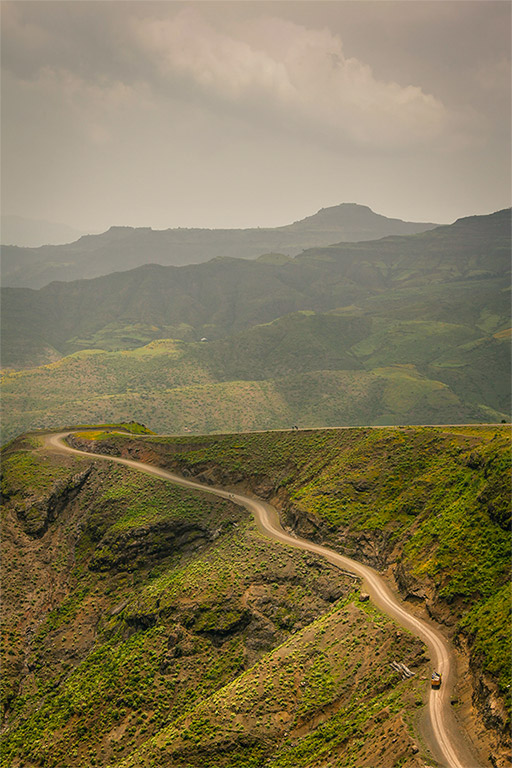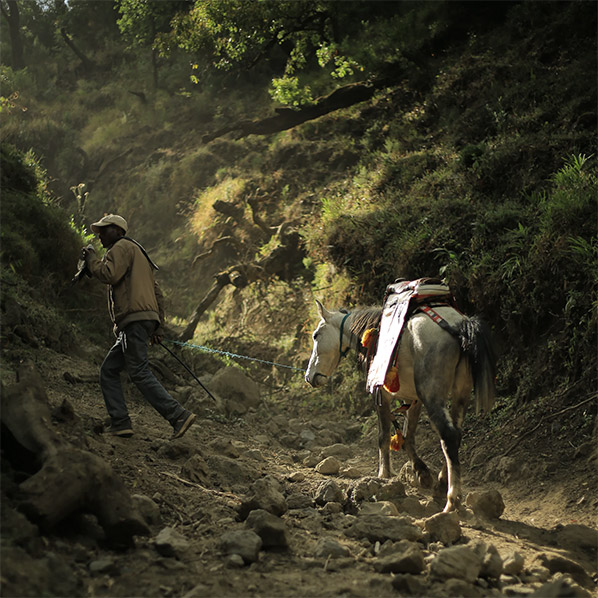Kaffa Rainforest: The last virgin coffee forest on the planet

Στην καρδιά ενός τροπικού δάσους, κρύβονται μερικά από τα αρχαιότερα καφεόδεντρα του κόσμου.
Coffee comes from Southern Ethiopia, and more specifically from the regions of Sidamo, Arsi, Harrar and Kaffa. Despite the widespread myth that coffee got its name from the Kaffa region, the exact opposite happened: Ethiopia's famous coffee was named by the Arabs qahwah, which translates loosely as "fruit drink" or "fruit wine". and this in turn baptized the whole region from which it came. The Kaffa region flourished as an autonomous kingdom until the end of the 19th century, when it was united with Ethiopia, in its current state form.
In this strange, verdant area, there is still the "Garden of Eden" for every coffee lover: the last surviving wild forest of coffee trees on the planet.
 Kafa Tropical Forest: paradise on earth
Kafa Tropical Forest: paradise on earth
Prior to the systematic cultivation of coffee, coffee trees grew wild in the wild in southern Ethiopia, forming dense rainforests. Due to deforestation, the systematization of coffee cultivation and all the changes that have taken place in agriculture, livestock and the general way of life in Ethiopia, most of these native, wild forests no longer exist. With one exception: the forest of Kafa!
The forest of Kafa does not differ much from the image we have of the tropical forests, with its rich vegetation, humidity and wide biodiversity, with the difference that it consists, to a large extent, of coffee trees! There is no crop, and the plants reproduce completely naturally, as the new trees sprout from the fruits that fall to the ground or are transported to other parts of the forest by animals and birds - a pure, unadulterated image that shows us the distant past of coffee, hundreds of years ago.
Scientists have identified hundreds of unknown varieties of coffee in the Kafa forest, and new ones are constantly being created over time. Unfortunately, the forest is declining in recent years, as its area is constantly declining. In recent years, however, the area has been transformed into a national park, giving locals the opportunity to maintain its unique character and at the same time to finance its maintenance sustainably, having income from tourism.
Local guides usually show tourists and the "mother of coffee": a huge, ancient coffee tree, which is the oldest surviving coffee tree in the Kafa forest, and perhaps the whole of Ethiopia. With an exaggeration, the locals claim that all the coffee in the world comes from the "Mother" - but it is not a lie that almost all coffee trees have distant ancestral plants from this rainforest. Besides, in the Ethiopian tradition it is mentioned that whoever drinks even a sip of coffee, anywhere in the world, is a citizen of Kafa, since he takes in something from its spirit.
 Is wild Ethiopian coffee commercially available?
Is wild Ethiopian coffee commercially available?
Wild coffee is extremely difficult to standardize and market, as it requires manual labor, extremely high know-how and equipment. If we take into account that areas like Kafa are protected by strict regulations, we understand that the task is even more difficult. However, from time to time several coffee brands provide some of these rare beans and market them, usually as limited options.
Strange as it may seem, wild coffee does not necessarily taste better than cultivated coffee - maybe even the opposite is true. In a good crop, all the elements that make up the terroir are thoroughly controlled, so that the taste is the best possible. In nature, this is obviously completely impossible. The taste profile of these wild coffees may be interesting for those who work in the coffee industry or for those who are really passionate about it, but it may disappoint someone who does not know the secrets of Ethiopian coffee.
Three suggestions of (cultivated) coffee for a tasty trip to Ethiopia!
Caffè Lab Etiopia Sidamo Grade 2 250g: Single-origin, 100% Arabica coffee of liquid processing and organic cultivation from Ethiopia, from the region of Sidamo. In the mouth, the notes of citrus and spices dominate, with the exotic feeling of cardamom and nutmeg gaining its impressions. The acidity is intense and felt on the palate, while the aftertaste is full and long lasting.
New York Monorigini Etiopia 250g: Single origin, 100% Arabica liquid processed coffee from Ethiopia, the homeland of coffee, from high altitude farms (1600-1800 meters). It is characterized by an intoxicating, exotic aroma, lively and playful acidity with delicious floral aromas but also discreet touches of chocolate.
Illy Arabica Selection Ethiopia 250g: Single origin, 100% Arabica coffee from the Yirgacheffe region. It is characterized by delicate taste and aroma, with notes of flowers and fruit suspicions. This variety is one of the varieties that compose the famous, signature blend of Illy.
Even if we can not get lost in the tropical forest of Kaffa, a sip of good Ethiopian coffee is enough to make us always have something of its spirit inside us.








